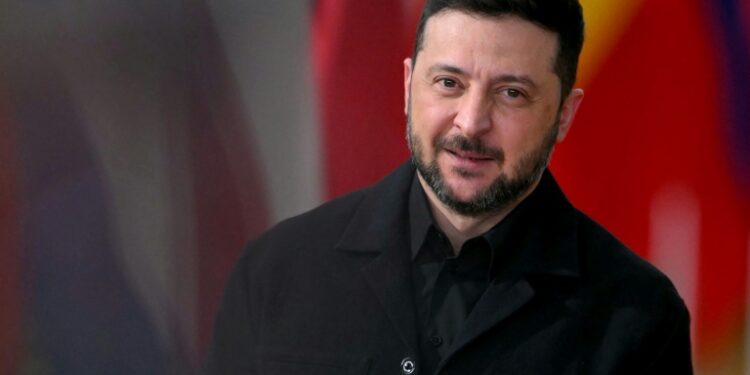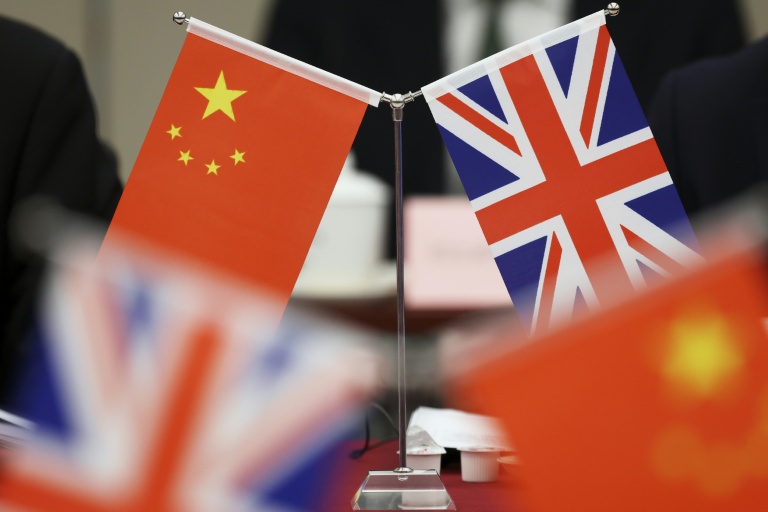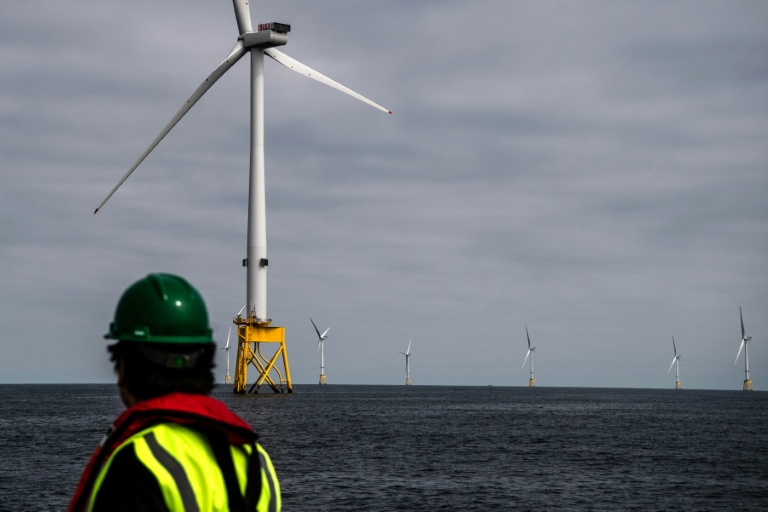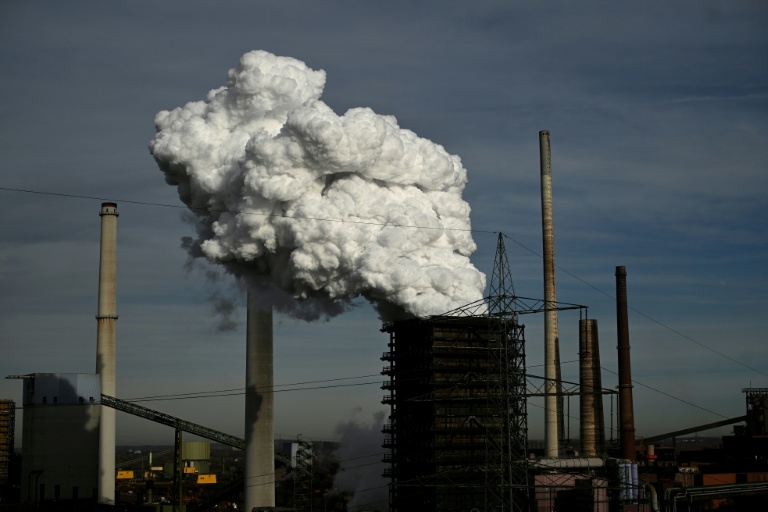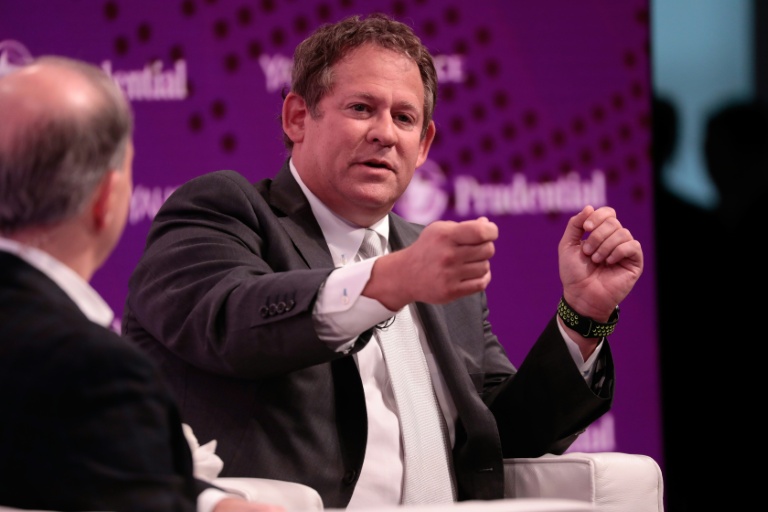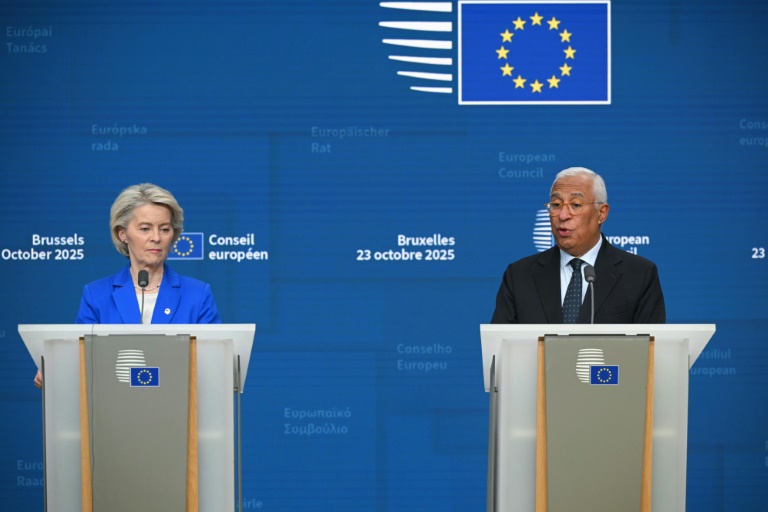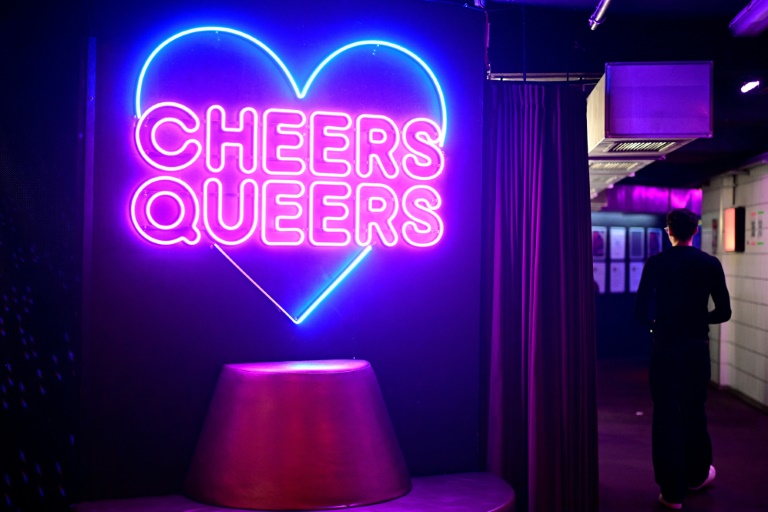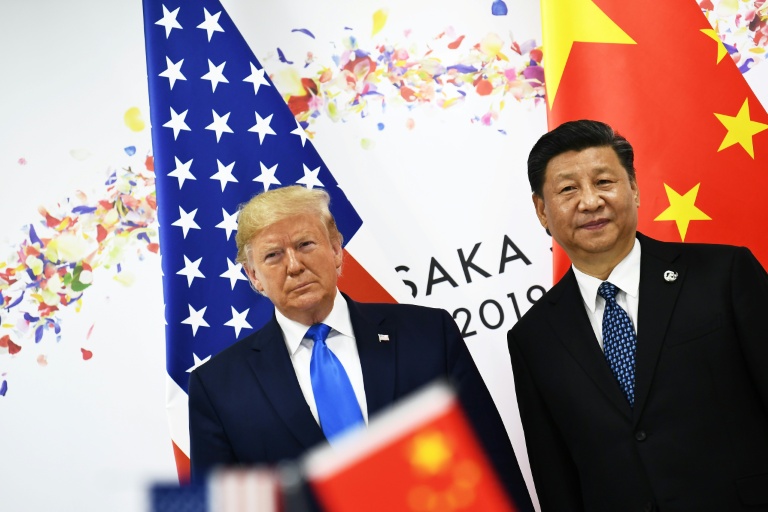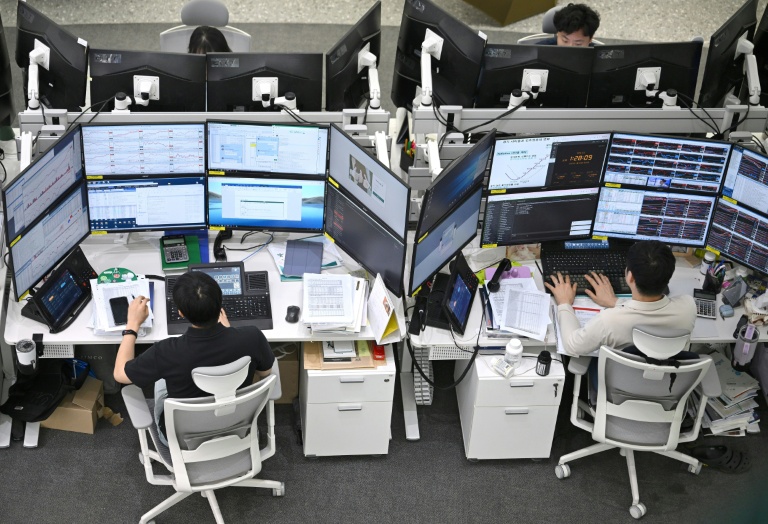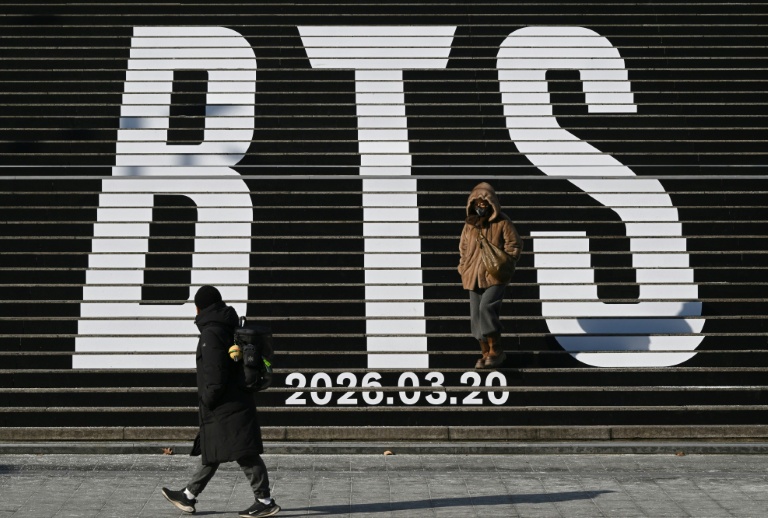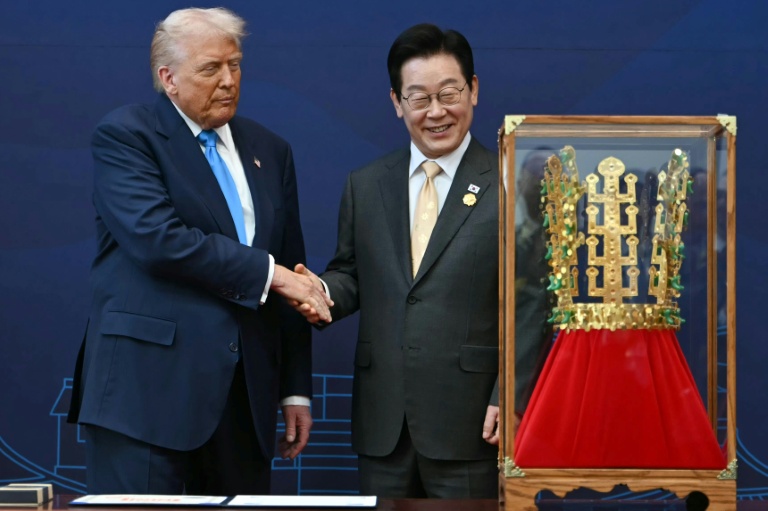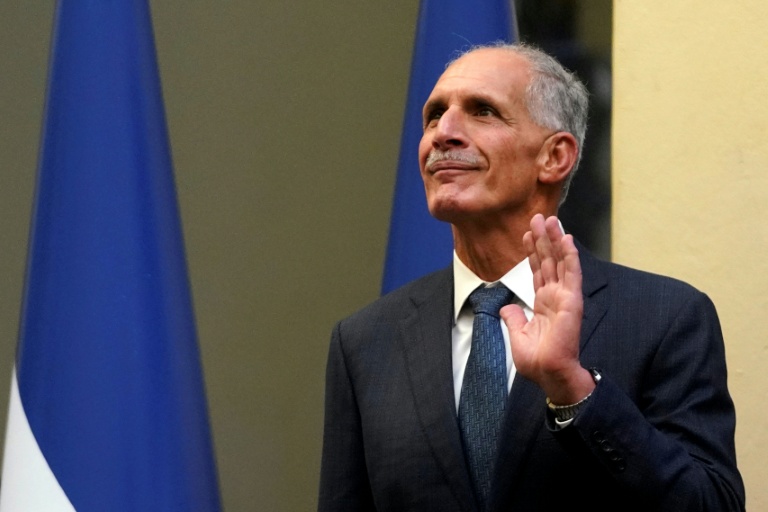Brussels (Belgium) (AFP) – EU leaders Thursday tasked the European Commission to move ahead with options for funding Ukraine for two more years, leaving the door open for a mammoth loan using frozen Russian assets, diplomats told AFP.
In broadly worded conclusions adopted after marathon talks in Brussels, EU leaders stopped short of greenlighting plans for the 140-billion-euro ($162-billion) “reparations loan” — pushing that crunch decision to December. But several diplomats told AFP the text was a step towards a potential agreement — though it had to be watered down in the face of strong objections from Belgium, where the bulk of the Russian central bank funds are held.
European Council President Antonio Costa said the bloc had “delivered an important message”. “The EU is committed to addressing Ukraine’s pressing financial needs for the next two years, including support for its military and defence efforts,” Costa wrote on X. “Russia must stop the war immediately.” Earlier in the day, Ukraine’s President Volodymyr Zelensky had urged EU leaders to agree to the proposal — with new funding sources seen as vital for keeping Ukraine afloat. “Russia brought war to our land, and they have to pay for this war,” he said, adding that Ukraine needed money from the start of next year.
The EU froze some 200 billion euros of Russian central bank assets after Moscow’s tanks rolled into Ukraine in 2022. The European Commission has floated a complex loan scheme it says could provide 140 billion euros to Kyiv over the next few years — without confiscating the assets outright. The vast majority of the funds is held in international deposit organisation Euroclear, based in Belgium — which is the most vocal sceptic of a plan it fears could open it up to costly legal challenges from Russia. The Brussels talks were focused largely on addressing those concerns.
Belgian Prime Minister Bart De Wever repeated demands for guarantees from all EU countries that they share the risk if Russia sues, and said other countries must also tap Moscow’s assets on their territory. Without sufficient assurances, De Wever warned he “would do everything in my power” to block the plan. Contrary to expectations, the summit conclusions — adopted by all member states with the exception of Hungary, seen as Russia’s closest ally in the 27-nation bloc — did not mention the loan directly. EU leaders instead invited the commission “to present, as soon as possible, options for financial support”.
“Subject to EU law, Russia’s assets should remain immobilised until Russia ceases its war of aggression against Ukraine and compensates it for the damage caused by its war,” the text read. Yet, a European diplomat described it as “a great success”. Even if the language was a “little more vague”, the substance did not change, with the EU executive called to put a detailed proposal on the table, the diplomat said. The compromise wording “does not close but does not rush” the sensitive matter of using Russian assets for Ukraine, added another diplomat.
The development came after US President Donald Trump buoyed Kyiv by hitting Moscow with sanctions on two oil majors, Rosneft and Lukoil. The US measures represent a major stepping up of its actions against Russia and reflect Trump’s frustration at being unable to persuade Vladimir Putin to end the conflict despite what he calls his personal chemistry with the Kremlin chief. Putin described the US sanctions as “unfriendly” but insisted they would not significantly hit the economy. Zelensky meanwhile called them “a strong and much-needed message that aggression will not go unanswered”.
Despite Trump’s outreach, Russia has continued its heavy bombardments on Ukraine, targeting key energy infrastructure ahead of the winter. Zelensky said he hoped Trump’s shift on sanctions would also herald a change of mind on giving Ukraine long-range Tomahawk missiles — after Kyiv came away from a meeting in Washington empty-handed last week. The US measures came as the EU also imposed a 19th package of sanctions on Russia over the war — targeting Moscow’s key energy revenues. As part of the sanctions package, the bloc brought forward a ban on the import of liquefied natural gas from Russia by a year to the start of 2027, and blacklisted more than 100 extra tankers from Moscow’s so-called “shadow fleet” of ageing oil vessels.
© 2024 AFP

